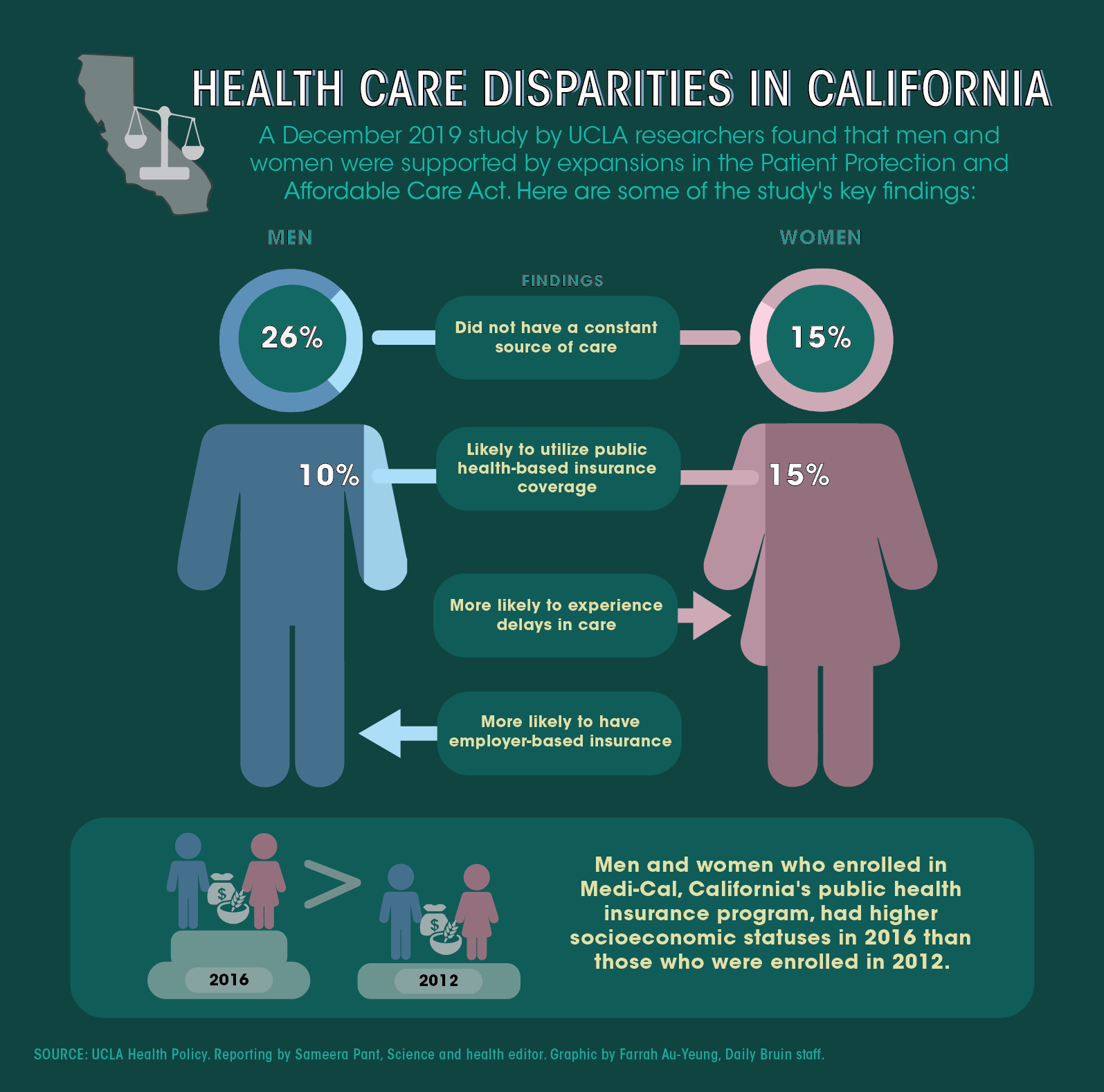Study looks into health care differences for men, women after Affordable Care Act


By Ashley Kim
Jan. 15, 2020 12:22 a.m.
According to a UCLA study, men and women in California were granted insurance expansions by the Patient Protection and Affordable Care Act, commonly known as Obamacare.
The study, published by the UCLA Center for Health Policy Research in December, investigated the effect of the ACA on the gender gap regarding access to health insurance and primary care in California. The study was authored by Tara Becker, a senior public administration analyst, and Susan H. Babey, a senior research scientist.
The study looked at survey data from 2012-2016 to investigate the potential impact of the ACA on insurance coverage and access to care, Babey said. The data was collected from around 20,000 California households per year for this survey.
The ACA, signed by former President Barack Obama in 2010, provided health care reform by giving millions of uninsured Americans health insurance coverage.
The findings showed that following the implementation of the ACA, the pool of adults who were eligible for Medi-Cal increased, as barriers to qualifying for it were lessened. Medi-Cal is a Medicaid program that provides public health insurance coverage at free or low-costs for low-income California residents.
Before the ACA, the gender disparities in insurance coverage could be attributed in part to the “young, invincible phenomenon,” in which young men tend to think of themselves as indestructible, said Shana Charles, former director of Health Insurance Studies at the UCLA Center for Health Policy Research. Such men do not sign up for insurance coverage or get the health care they need, Charles said.
The ACA widened the pool of people who qualified for Medi-Cal to all low-income adults. Previously, adults were only eligible if they were low-income parents to children younger than 18, low-income pregnant women, were experiencing extreme poverty or had a disability.
“What we’ve seen is an impact on people who have had the highest rates of being uninsured benefitting from the Affordable Care Act,” said professor of health policy and management and senior fellow at the UCLA Center for Health Policy Research Gerald Kominski.
The gender gap in health insurance had the opportunity to diminish following the enactment of the ACA, according to the study. By expanding coverage to all low-income adults instead of to only low-income parents or pregnant women, a greater percentage of males received coverage, according to the study.
The trends show that following the passing of the act, single, young, low-income men were the demographic most represented in sign-ups for health coverage. However, men were still more likely than women to be uninsured and women were more likely than men to be enrolled in Medi-Cal and similar public programs, according to the study.
“While health insurance and having good access to care are definitely important for receipt of health care services, there were some differences between men and women’s receipt of health care services that may have something to do with their different perceptions of how they think about their health or health care system,” Babey said.
Men still make choices that amplify risky health situations and are less likely to seek health care, Charles said. There should be public intervention to encourage men of all ages to seek preventive care, Charles added.
However, all of these observed differences may change.
Since his inauguration, President Donald Trump has expressed his desire to dismantle the ACA.
Trump seeks to replace the ACA with the Graham-Cassidy plan, which proposes to get rid of funding to the ACA in favor of a single block grant to cover the uninsured per state.
Furthermore, Kominski added that the ACA allows adult children up to age 26 to stay under their parents’ policies, providing protection that would go away if the act was struck down.
“There are roughly 20 million Americans who are insured today as a result of the ACA,” Kominski said. “They would lose their insurance coverage and people who are currently insured would lose their protections for condition exclusions.”

